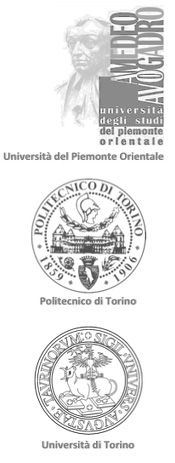| |
Religious Orders and Civil Society in Piedmont (1560-1860)
Anyone familiar with religious orders, in early modern and modern age, will realise that the Italian existing studies are generally different in their emphases, following four principal axes. For many of them, the stress is on hagiography and on religious practices such as the production of sanctity. Another great number of studies focus on particular sources, especially on the 1650s Papal survey. A third way in which researchers deal with the subject is in their concern with nunneries analysed on various levels (art patronage, internal organization of convents, nuns culture and family patrimonial dynamics). Finally, the religious orders’ art patronage itself (in Roma, Florence, Turin and so on) is a field that has attracted more and more scholarly attention – attention reflected in a rich if fragmented literature.
Rarely do historical studies offer analyses of religious orders as a complex of institutions rooted in a (large) territorial context. The CRESO project is an attempt to re-examine the role of both male and female orders in civil society through such a key, in a period between the Council of Trent and the suppression of religious corporations due to the Siccardi Laws. This approach calls attention on the multiple relationships that each religious community may have established with other religious families, with the laity and with the secular clergy. Moreover, it sets the stage for discussing porosity between clergy and laity but also administrative boundaries and organization of each regular family, as well as their divergence with state and bishopric administrative districts. In this perspective, the research project also intends to examine themes remained little explored in Piedmont, such us the persistence of abbeys in early modern age; the orders’ contribution to Piedmontese learning and antiquarian culture; the devotional activities of specific orders; the role of religious orders as actors of both urban transformation and land market; and the dynamics of substitution and transformation of artistic ornaments in connection with the affairs of the various orders.
The CRESO project joins five research units affiliated to three different academic institutions: Università del Piemonte Orientale, Università di Torino and Politecnico di Torino. Regione Piemonte, according to the scheme “Bando Scienze Umane e Sociali”, supports the research.
The project more in detail: download |

